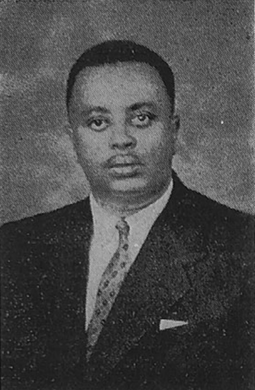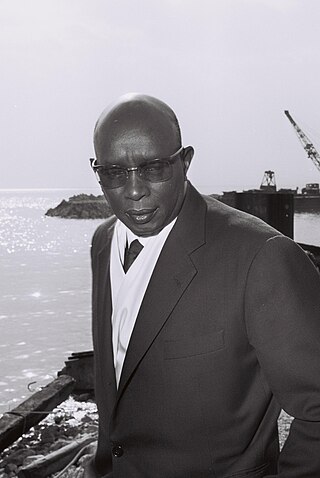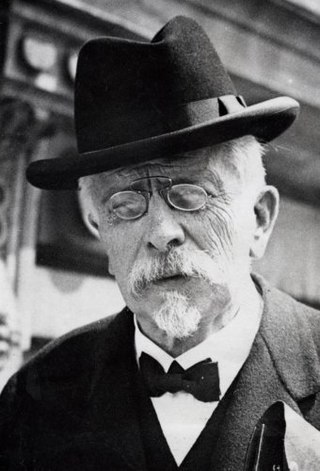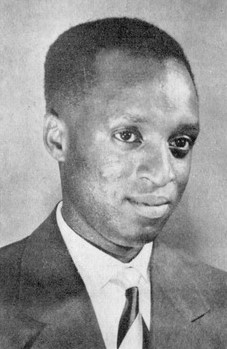
Burundi originated in the 16th century as a small kingdom in the African Great Lakes region. After European contact, it was united with the Kingdom of Rwanda, becoming the colony of Ruanda-Urundi - first colonised by Germany and then by Belgium. The colony gained independence in 1962, and split once again into Rwanda and Burundi. It is one of the few countries in Africa to be a direct territorial continuation of a pre-colonial era African state.

Prince Louis Rwagasore was a Burundian prince and politician, who was the second prime minister of Burundi for two weeks, from 28 September 1961 until his assassination on 13 October.

Mwambutsa IV Bangiricenge was the penultimate king (mwami) of Burundi who ruled between 1915 and 1966. He succeeded to the throne on the death of his father Mutaga IV Mbikije. Born while Burundi was under German colonial rule, Mwambutsa's reign mostly coincided with Belgian colonial rule (1916–62). The Belgians retained the monarchs of both Rwanda and Burundi under the policy of indirect rule.

This article lists the prime ministers of Burundi since the formation of the post of Prime Minister of Burundi in 1961 until the present day. The office of Prime Minister was most recently abolished in 1998, and reinstated in 2020 with the appointment of Alain-Guillaume Bunyoni.

Ruanda-Urundi, later Rwanda-Burundi, was a geopolitical entity, once part of German East Africa, that was occupied by troops from the Belgian Congo during the East African campaign in World War I and was administered by Belgium under military occupation from 1916 to 1922. It was subsequently awarded to Belgium as a Class-B Mandate under the League of Nations in 1922 and became a Trust Territory of the United Nations in the aftermath of World War II and the dissolution of the League. In 1962 Ruanda-Urundi became the two independent states of Rwanda and Burundi.

The position of vice-president of the Republic of Burundi was created in June 1998, when a transitional constitution went into effect. It replaced the post of Prime Minister.
The Ruanda-Urundi franc was a currency issued for the Belgian mandate territory of Ruanda-Urundi in 1960–62 which continued to circulate within its successor states of Rwanda and Burundi until 1964. The currency replaced the Belgian Congo franc which had also circulated in Ruanda-Urundi from 1916 to 1960 when the Belgian Congo became independent, leaving Ruanda-Urundi as the sole Belgian colonial possession in Africa. With the independence of Rwanda and Burundi in 1962, the shared Ruanda-Urundi franc continued to circulate until 1964 when it was eventually replaced by two separate national currencies.

The following outline is provided as an overview of and topical guide to Burundi:
Joseph Cimpaye was a Burundian politician and writer who served as the first prime minister of Burundi for a brief term in 1961 and is considered to have written the first Burundian novel.

Burundi, officially the Republic of Burundi, is a landlocked country in the Great Rift Valley at the junction between the African Great Lakes region and Southeast Africa, with population of over 14 million people. It is bordered by Rwanda to the north, Tanzania to the east and southeast, and the Democratic Republic of the Congo to the west; Lake Tanganyika lies along its southwestern border. The capital city is Gitega and the largest city is Bujumbura.

The Belgian Minister of the Colonies was a Belgian parliamentarian who was responsible for the territories of the colonial empire in Central Africa from 1908 to 1962, comprising the colony of the Belgian Congo (1908–60) and the international mandate of Ruanda-Urundi (1916–62). The exact title was changed on several occasions.

Belgium-Rwanda relations refers to the international and diplomatic relations between Belgium and Rwanda. Belgian relations with Rwanda started under the League of Nations mandate, when the modern day countries of Rwanda and Burundi were governed as Ruanda-Urundi. As the colonial power, Rwanda's relationship with Belgium has been significant throughout the country's history, even after independence.

Paul Mirerekano was a Burundian politician. Ethnically Hutu, he worked as an agronomist for the Belgian colonial administration in Ruanda-Urundi before starting a successful market garden in Bugarama. Politically, he was a nationalist, monarchist, and advocate for Hutu civil rights. He was a leading member of Louis Rwagasore's political party, the Union for National Progress (UPRONA), and in 1961 served as the organisation's interim president. Rwagasore's assassination in 1961 fueled a rivalry between Mirerekano and Prime Minister André Muhirwa, as both men claimed to be the heirs to Rwagasore's legacy and sought to take control of UPRONA. The controversy led to the coalescing of two factions in the party, with Mirerekano leading what became known as the Hutu-dominated "Monrovia group". His criticism of Muhirwa and his successor led him to be arrested on several occasions, but in 1965 he was elected to a seat in the National Assembly representing the Bujumbura constituency. The body subsequently elected Mirerekano its First Vice-President on 20 July. In October Hutu soldiers launched a coup attempt which failed, but led to the outbreak of ethnic violence. The government believed Mirerekano helped plan the coup attempt and executed him. His reputation remains a controversial subject in Burundi.

Joseph Biroli-Baranyanka or Joseph Biroli was a Burundian politician and was the first Burundian to receive a university education. Born in 1929 to a prominent chief, he was a Ganwa of the Batare clan. He performed well as a student and earned a diploma from the Institut universitaire des Territoires d'Outre-Mer in 1953. After continuing his education at several other universities he took up work for the European Economic Community. In 1960 his brother Jean-Baptiste Ntidendereza co-founded the Christian Democratic Party, and Biroli became the party's president. His main political rival was Prince Louis Rwagasore, a Ganwa of the Bezi clan who led the Union for National Progress. Biroli was friendly to the Belgian colonial administration in Ruanda-Urundi, while UPRONA demanded immediate independence.

Germany–Rwanda relations are good and there is a "close and pragmatic" relationship between the two countries, according to the German Foreign Office. In the 21st century, Germany is one of the most important donors of development aid to Rwanda.